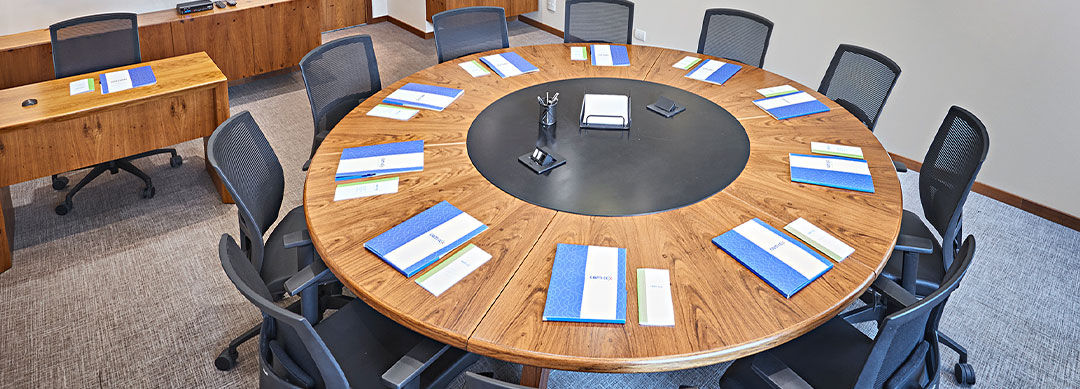Research shows that greater use of the method by state entities came to stay
By Sérgio Siscaro
Over the past few years, it has been observed the increasing use of arbitration as a method for conflict resolution with state entities. Since the law 13.129/2015, which amended the Arbitration Law (law 9.307/1996) by formally authorizing it, arbitration has been increasingly considered by state-related agencies. This trend was captured in the latest edition of the Research on Arbitration in Numbers and Values, conducted annually by lawyer and professor Selma Lemes. The latest edition, finalised in December, brings the results of 2019, and compares them with those of the previous year.
The survey shows that 48 new arbitration proceedings involving direct and indirect state-owned entities were initiated in seven of the eight arbitration institutions analyzed. This number is equivalent to 16.66% of all new arbitrations registered that year in these chambers and represents a growth of around 6.73 percentage points with respect to the participation that these proceedings had in 2018 (9.93%).
According to Lemes, this result stems from public-private partnerships (PPP) and public concession contracts, whose clauses contain provisions for the use of arbitration to settle any disputes between the parties. “These contracts are complex; their financial engineering equates them to private contracts. And today there is a predominance of consensual administrative law, in which contracts in the public sector are increasingly equated to the rules of private law, although without renouncing some of its own characteristics”, she explains.
There would also be a cultural change within State-Owned Entities in Brazil, which is increasingly opting for arbitration. “There is a whole academic development reinforcing this understanding. The State itself understands better how arbitration works, and the doctrine of administrative law is becoming more flexible”, she says. According to the professor, the high degree of professionalism of the Brazilian chambers also contributes to the public authorities’ use of the method in their disputes, and the growing trend in the adoption of arbitration in these contracts should continue in the future.
“The crisis brought on by Covid-19 has greatly affected the areas served by public concessions, leading to the need to seek financial rebalancing of the contracts. If an agreement is not reached, the case must be solved through arbitration”, she ponders. She recalls the case of Viracopos airport, in Campinas (SP, which had its arbitration process opened to resolve disputes between the government and the concessionaire Aeroportos Brasil Viracopos (ABV), controlled by UTC and Triunfo.
CAM-CCBC has a specific secretariat to manage arbitrations involving the public authorities, which are regulated by its own Administrative Resolutions.
Results of the survey
The study by Selma Lemes is focused on the eight main arbitration chambers in operation in Brazil, in addition to CAM-CCBC, the survey analyzed data from Centro de Arbitragem da Amcham Brasil (Arbitration Center of Amcham Brasil); from Câmara de Mediação, Conciliação e Arbitragem de São Paulo (Chamber of Mediation, Conciliation and Arbitration of São Paulo) (CAM-Ciesp/Fiesp); of Câmara de Arbitragem do Mercado – B3 (Market Arbitration Chamber – B3) (CAM-Mercado); Corte Internacional de Arbitragem da Câmara de Comércio Internacional (International Court of Arbitration of the International Chamber of Commerce) (ICC); Câmara de Arbitragem da Fundação Getúlio Vargas (Arbitration Chamber of Getúlio Vargas Foundation) (CAM- FGV); Centro Brasileiro de Mediação e Arbitragem (Brazilian Center for Mediation and Arbitration) (CBMA); and Câmara de Arbitragem Empresarial – Brasil (Chamber of Business Arbitration – Brazil) (Camarb). The information compares the years 2018 and 2019. Therefore, before the spread of the Covid-19 pandemic in the country and its effects on the activities of these institutions.
According to the survey, there was a slight decrease in the volume of new arbitrations between 2018 and 2019, which went from 292 to 289 proceedings (reduction of 1%). However, the total number of cases being processed increased by 7.2%, from 902 to 967. In terms of amounts involved, there was a retraction of 25.2%, from R$ 81.44 billion to R$ 60.91 billion. The institution that recorded the highest number of new arbitrations in 2019 was CAM-CCBC, which accounted for 33.56% of the cases.
The year 2019 was also characterised by the predominance of cases involving corporate matters, followed by proceedings related to construction and energy contracts. In addition, there was an increase in the participation of foreign arbitrators in arbitrations with Brazilian parties. At CAM-CCBC, this increase was 35%. According to the study, this is explained by the increase in the volume of international contracts.
Market trends
In Lemes’ understanding, the results revealed by the research should have been maintained throughout 2020, even with the scenario impacted by the dissemination of the new coronavirus pandemic. “The use of arbitration tends to remain at these levels. But there are possible new factors that may benefit it. Last year, there was a need to use virtual technologies to conduct arbitration proceedings – which represented considerable savings in time and financial resources. I believe that, in the future, we will have face-to-face arbitration hearings again, but they will be sporadic”, she says.
The professor also points out the increase in the number of foreign arbitrators in proceedings held in Brazil, which suggests a growth in the volume of international contracts. “This is particularly good. These arbitrators have another way of analyzing the issues that are handled.” Another trend is the increase in third-party funding.), which has increased by 50% (from ten to 15 cases).
“This aspect is related to another issue: the need to update the arbitration rules so that they can keep up with the sophistication of contracts. Without changing the legislation, punctual changes are being introduced, by means of which the chambers are better able to meet the needs of the market”, she concludes.





